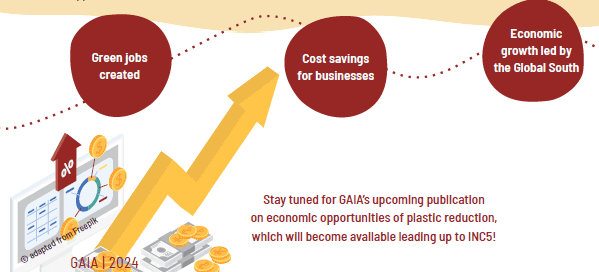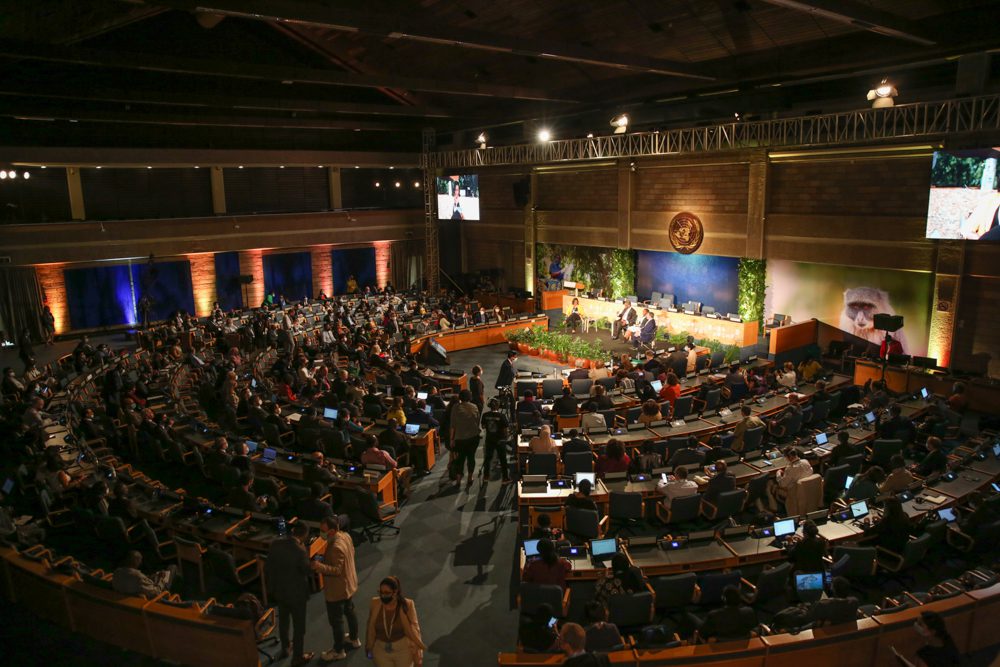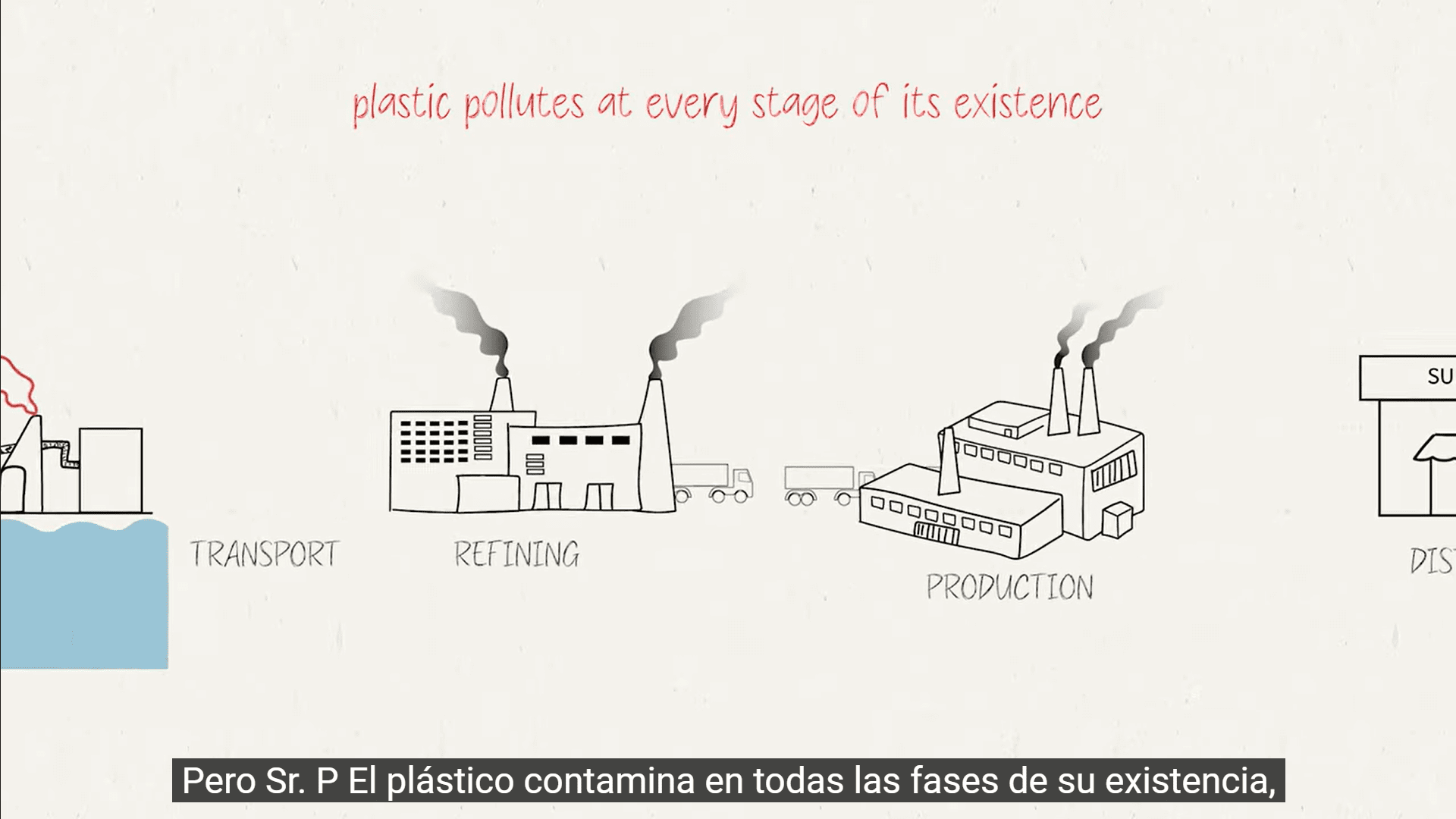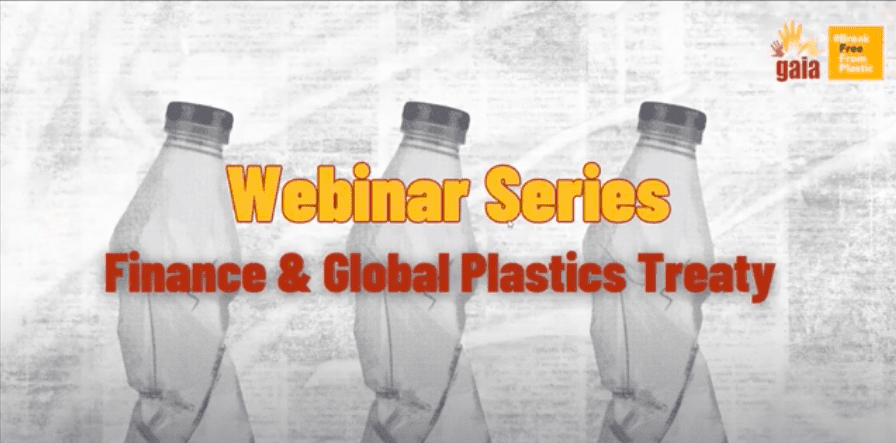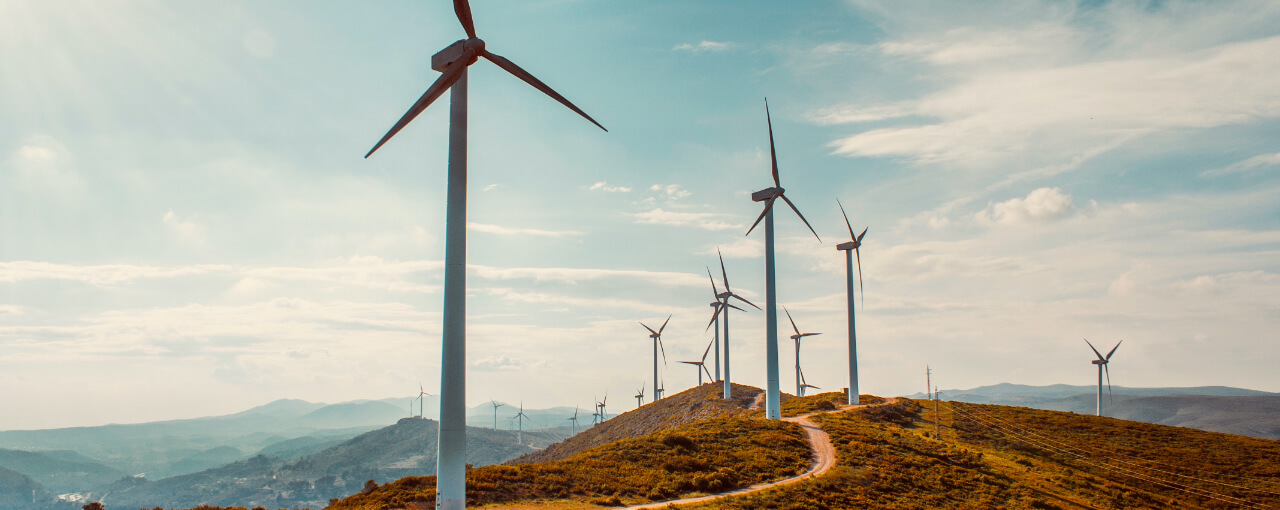GAIA members from the Global South have a message at INC-4: We didn’t start the plastic crisis, but together, we can end it!
Thanks to the tireless work of the #breakfreefromplastic movement and GAIA members around the world, in March of 2022, the United Nations Environment Assembly decided on a mandate to create the world’s first Plastics Treaty, a legally binding international law aimed at reducing plastic pollution worldwide, covering the full life-cycle of plastic. This is a historic step forward in the fight against plastic pollution, and would not have been possible without a diverse movement of waste pickers, frontline community activists, and zero waste advocates demanding systemic change. However, there’s still a long road ahead–there will be a series of meetings through the end of 2024 during which the treaty will take shape. GAIA and our allies will be present for the entirety of the negotiations to make sure our issues are represented, but it will take continuing pressure from people all over the world to ensure that we get a strong treaty that meets the scale of the crisis. Such a treaty must include plastic reduction targets, eradicate toxics, exclude false solutions like incineration, scale up zero waste solutions such as reuse, and center a just transition for waste pickers and other groups at the frontlines of the crisis.
Newsroom
Newsroom Archive at YouTube
Go to our playlist and watch past newsroom videos.
Read the latest plastics treaty news
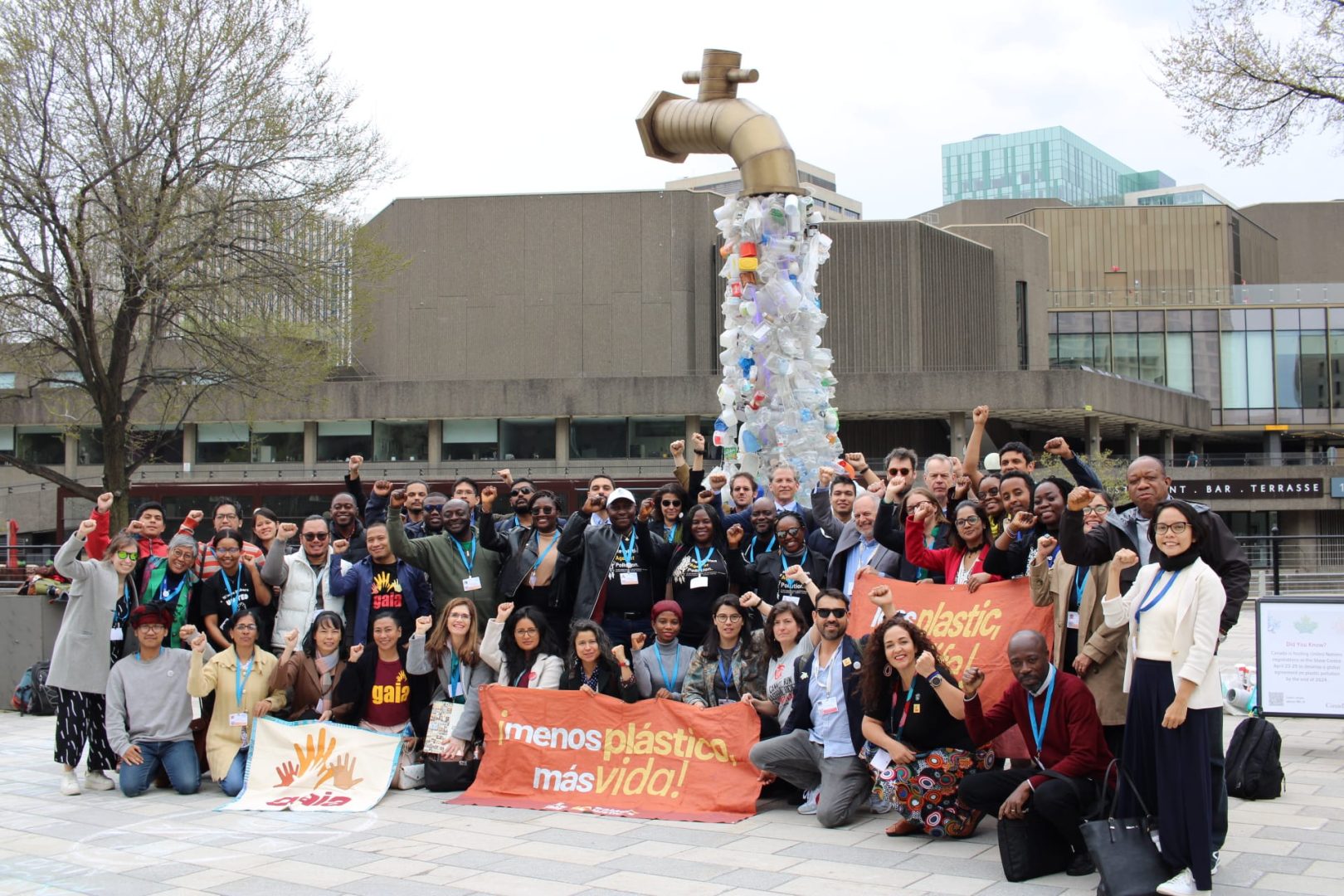

Policy Briefs/Submissions
GAIA INC-4 Booklet
This booklet serves as a comprehensive guide to the plastics treaty negotiations (INC-4) in Ottawa, complete with primers on:
- What the INC-4 could achieve
- The rules of procedure
- Priorities for zero draft discussion in contact groups
- A global plastics tax
- Extended Producer Responsibility
- plastics offsetting, credits, and neutrality: false claims and polluting practices
- Just Transition
- Switching materials or systems?
- The plastics circularity trap
- The plastics treaty and the Basel Convention
- “Is there anything there?” Nuclear-assisted chemical recycling
- Definitions


Plastic Production Reduction: The Climate Imperative
In advance of the plastics treaty negotiations starting next week, Lawrence Berkeley National Laboratory (LBNL) has released a groundbreaking study revealing the enormous climate impact of plastic production. Based on the report’s findings, Global Alliance for Incinerator Alternatives (GAIA) has co-authored a policy brief with other academics in the field that shows how rapidly the world must reduce plastic production in time to avert catastrophic warming. We found that to avoid breaching the 1.5°C limit set by the Paris Agreement, primary plastic production must decrease by at least 12% to 17% per year, starting in 2024.
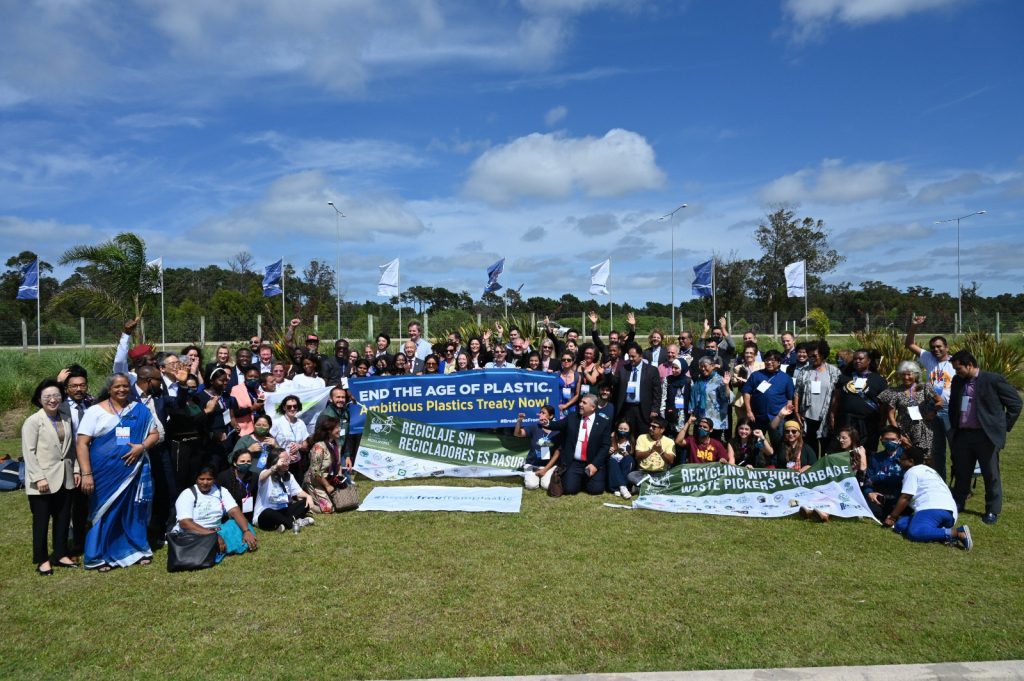
GAIA INC-3 Booklet
This booklet serves as a comprehensive guide, complete with primers on:
- what the INC-3 could achieve
- the rules of procedure
- scope and principles
- priorities for zero draft discussion in contact groups
- the plastics circularity trap
- the plastics treaty and the Basel Convention
- Definitions
While recognising and supporting the need to avoid duplication of mandates,institutions and resources between treaties, the new legally binding international instrument to end plastic pollution (“Plastics Treaty” or “the Treaty”) offers an excellent opportunity to highlight and fill gaps that either fall outside the scope of the Basel Convention or that the Basel Convention is not effectively addressing.
The future plastics treaty’s scope agreed in UNEA resolution 5/14 covers all plastics and all plastic pollution across the full lifecycle of plastics. In addition to the Rio Principles, human rights, the principle of prevention and inter-generational equity must also be reflected in treaty control measures and means of implementation.
References to the “circular economy of plastics” and “plastics circularity” have multiplied around the
plastic treaty negotiations. This brief considers the following questions:
- What is circularity – is it the same as recycling?
- Is circularity always good for the environment?
- For whose profit and at whose expense is plastic waste traded for “global plastics circularity”?
- What are the challenges with plastic recycling, and what future does it have?
- What safeguards are needed for the rights of workers who collect and recycle plastic wastes?
This document is an overview of the key GAIA asks for INC-2. More detail can be found in the GAIA INC-2 submission.
Read GAIA’s select comments on document UNEP/PP/INC.2/4 Potential options for elements towards an international legally binding instrument, based on a comprehensive approach that addresses the full life cycle of plastics (Options Paper).
This document contains an overview of the status of the negotiations thus far, as well as a negotiations timeline.
Adequate definitions of plastic products and polymers are needed in the global plastic treaty to capture the full range of sources of plastic pollution (November 2022).
In the context of the upcoming plastic treaty negotiations in Paris (INC-2, May-June 2023), Extended Producer Responsibility (EPR) schemes are often put forward as an essential policy approach to address the global plastic pollution crisis, especially as a source of funding and a way to incentivize redesign for reuse and plastic waste prevention. France is often cited as an EPR pioneer, particularly in the use of eco-modulated fees to encourage reuse and eco-design.
This paper draws lessons from France’s EPR experience in packaging and other sectors, and explores to what extent EPR schemes can truly promote reuse and other eco-design, reduce low-quality recycling and plastic burning, as well as effectively fund the costs of the plastic pollution crisis.
Read GAIA’s key recommendations for INC-2 from May 29-June 2 2023.
GAIA’s recommendations for the negotiation process towards a global instrument on plastic pollution.
Issues in Focus
Plastics Crisis: Challenges, Advances and Relationship with Waste Pickers
Negotiations must include the recognition of the historical work of those who have recovered more materials and in the most efficient way: the waste pickers.
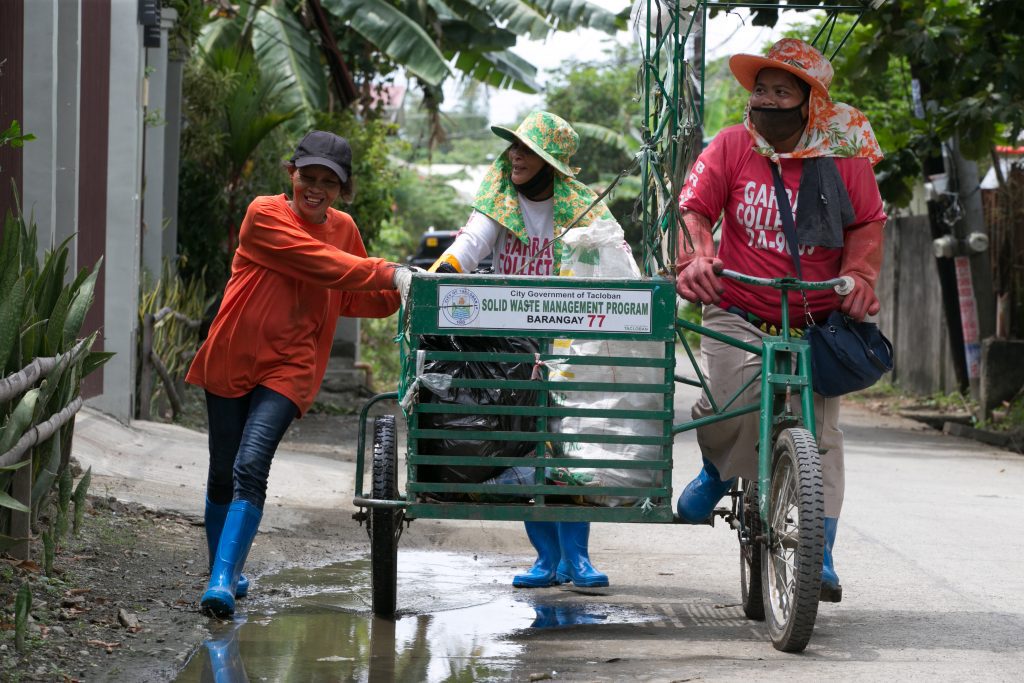
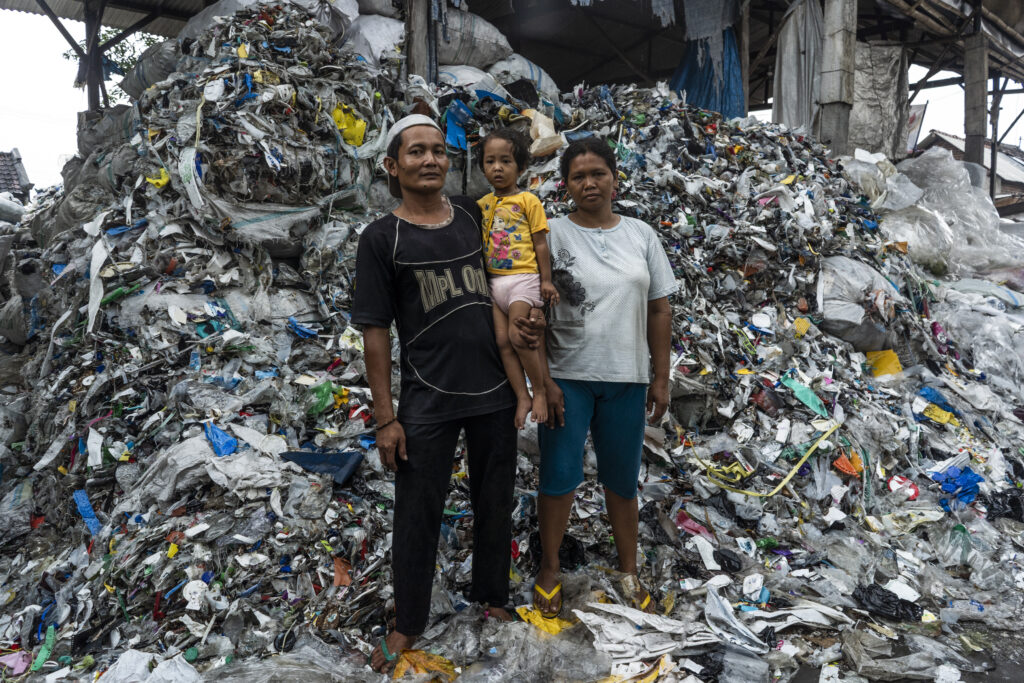
Overview of the Plastics Treaty/Tratado sobre plásticos
Plastic pollution does not respect borders. It is in the air we breathe, the food we eat, the water we drink, and even in our bodies. A new binding legal instrument, covering the entire lifecycle of plastic, is required to tackle this planetary crisis.
The Plastic Waste Trade
Top exporters such as the United States, Germany, the UK, Japan and Australia are placing a disproportionate toxic burden on the environment and communities in importing countries. A Global Plastics Treaty can enact stricter measures on the waste trade to prevent environmental injustices.
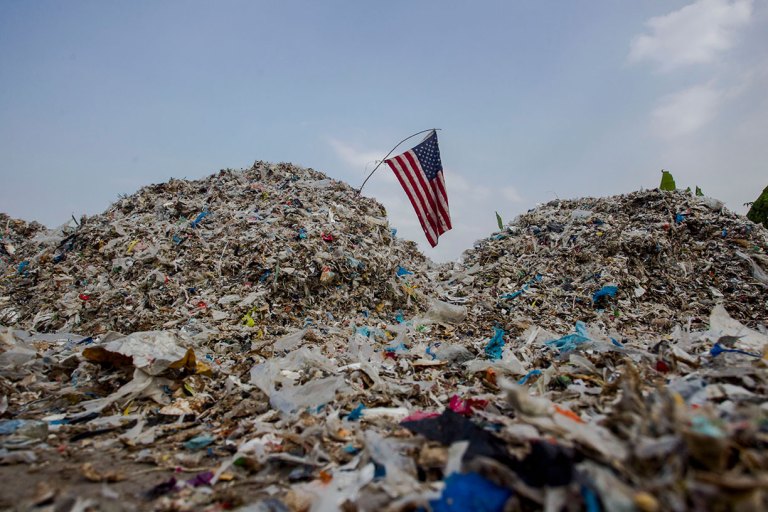
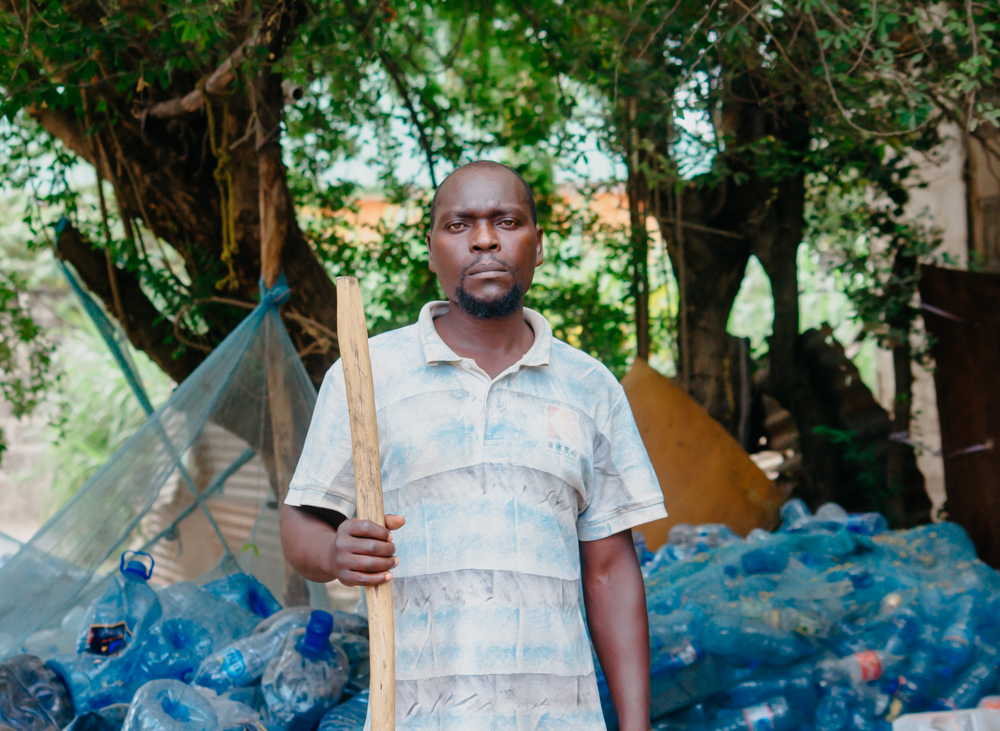
Plastic and Waste Pickers/Recicladores
Plastic takes up a large percentage of the waste handled by waste pickers. Consequently, they are one of the most vulnerable occupation groups that stand to be impacted by the global plastics treaty. The treaty must establish the legal frameworks required to improve working conditions for waste pickers.
Toxics and Health
Plastic contains toxic chemicals that leach into our food, water, and soil. Out of about 10,000 chemicals used as plastic additives, few have been widely studied, let alone regulated. A treaty must address plastic’s toxic burden.
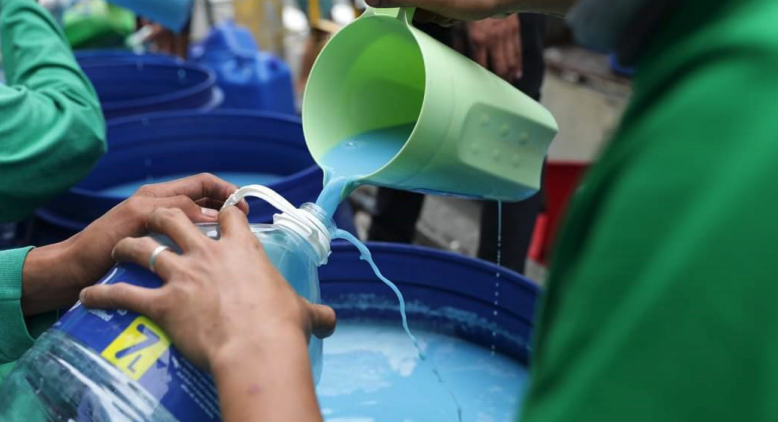

Plastic and Climate Change/Los plásticos y el cambio climático
Plastic is a significant contributor to climate change throughout its lifecycle. By 2050, emissions from plastic alone will take up over a third of the remaining carbon budget for a 1.5 °C target. A plastics treaty must impose legally-binding plastic reduction targets.
Chemical “Recycling” and Plastic-to-Fuel
Faced with increasing pressure from lawmakers and civil society to reduce plastic production and greater awareness of the limits of mechanical recycling, the petrochemical industry has been peddling chemical “recycling” and “plastic-to-fuel” as a primary solution to plastic pollution. However, after billions of dollars and decades of development, these approaches do not work as advertised. A plastics treaty stands to be undermined if it embraces these industry-backed false solutions.


Waste Incineration and Burning Waste in Cement Kilns
Burning waste emits climate pollution and other toxic chemicals, and is the least energy-efficient and most costly method of energy production. A plastics treaty must adopt a moratorium on new incinerators and encourage a roadmap to phase out all existing incinerators by 2030.
Burning Waste in Cement Kilns
Burning plastic in cement kilns results in toxic emissions, threatening the health of workers, communities and the environment, especially in low-income countries in the Global South. Widespread burning of waste in cement kilns would also worsen the already devastating carbon footprint of the cement industry. A plastics treaty must phase out burning plastic waste in cement kilns.

Plastic Neutrality and Credit
The global plastics treaty provides an important opportunity to officially discourage or ban the use of plastic credits before they become widespread. Doing so would avoid the incredible amount of regulatory oversight needs —both in the private and public sectors— to organize and
manage international plastic credit markets. The collective efforts could be better spent on reducing plastic production rapidly.
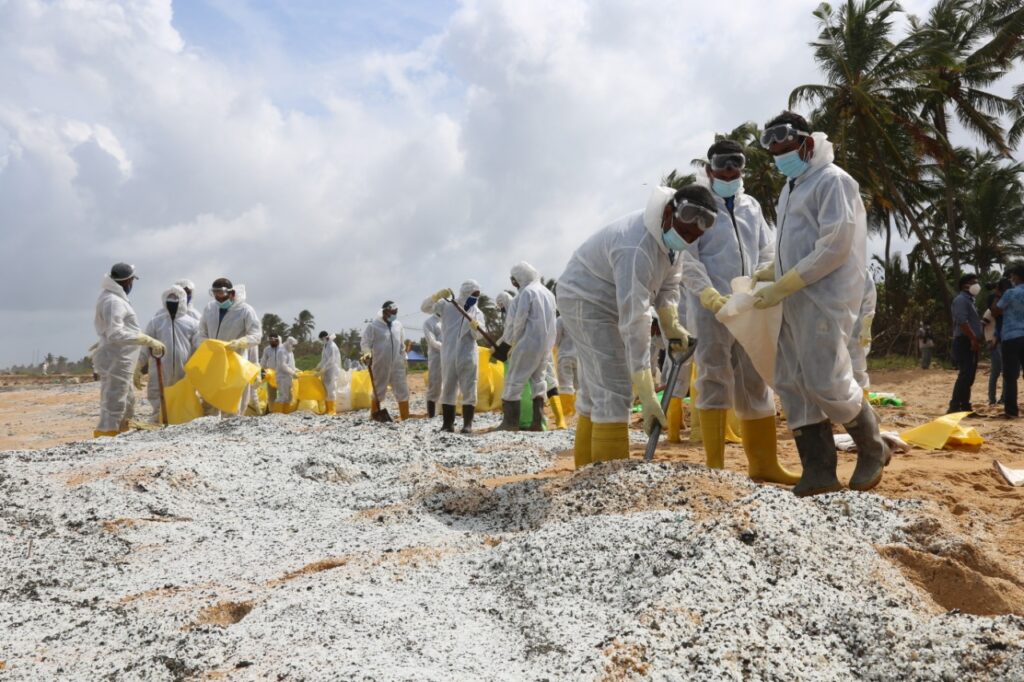

Zero Waste Finance
A transition from a plastic-reliant economy toward a circular zero waste economy requires effective mobilization and allocation of financial resources. Public and private finance have distinct and intersecting roles to play in supporting and scaling up innovations for waste prevention, redesign, alternative delivery and reuse systems as well as improving existing waste collection and recycling systems.
Extended Producer Responsibility
Extended producer responsibility (EPR) policies seek to improve the environmental and social performance of products by holding producers and brand owners accountable for the entire lifecycle of their products. The global plastics treaty must embed well-designed EPR policies in it, guiding producers to prioritize upstream solutions.

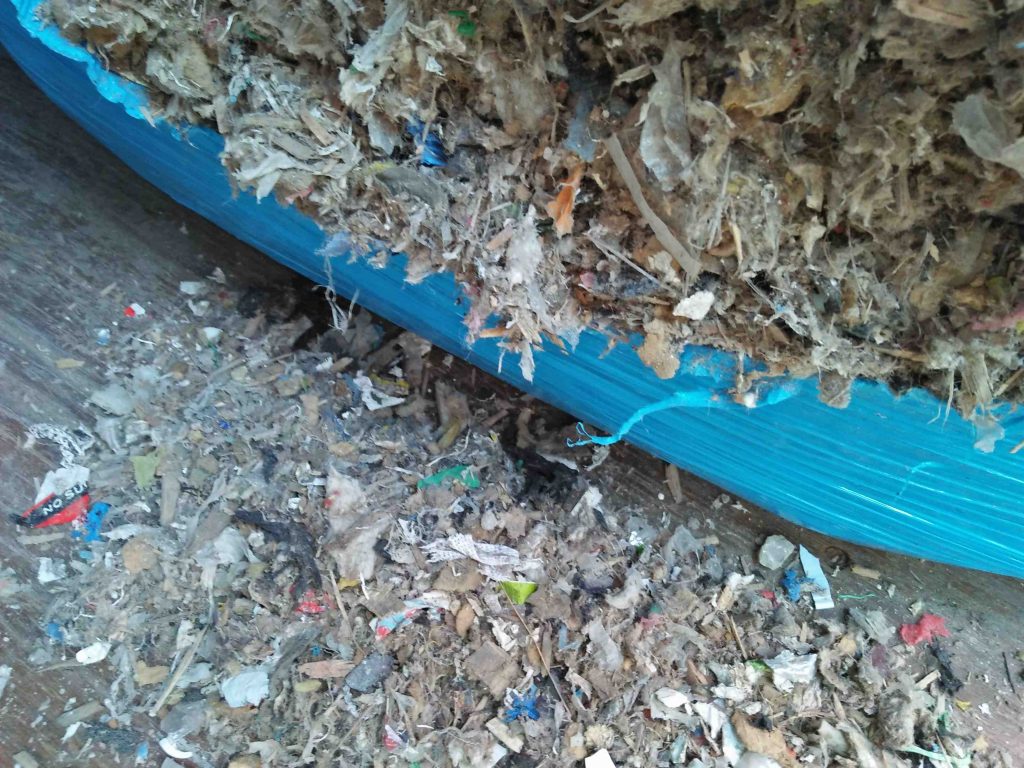
Bioplastics
The global Plastics Treaty must focus on plastic reduction and reuse, instead of substituting a plastic single-use item for a bio-based, biodegradable, or compostable one.
Webinars
Watch the most recent Plastics Treaty webinars
Webinar Archive at YouTube
Go to our playlist and watch past webinars.

























